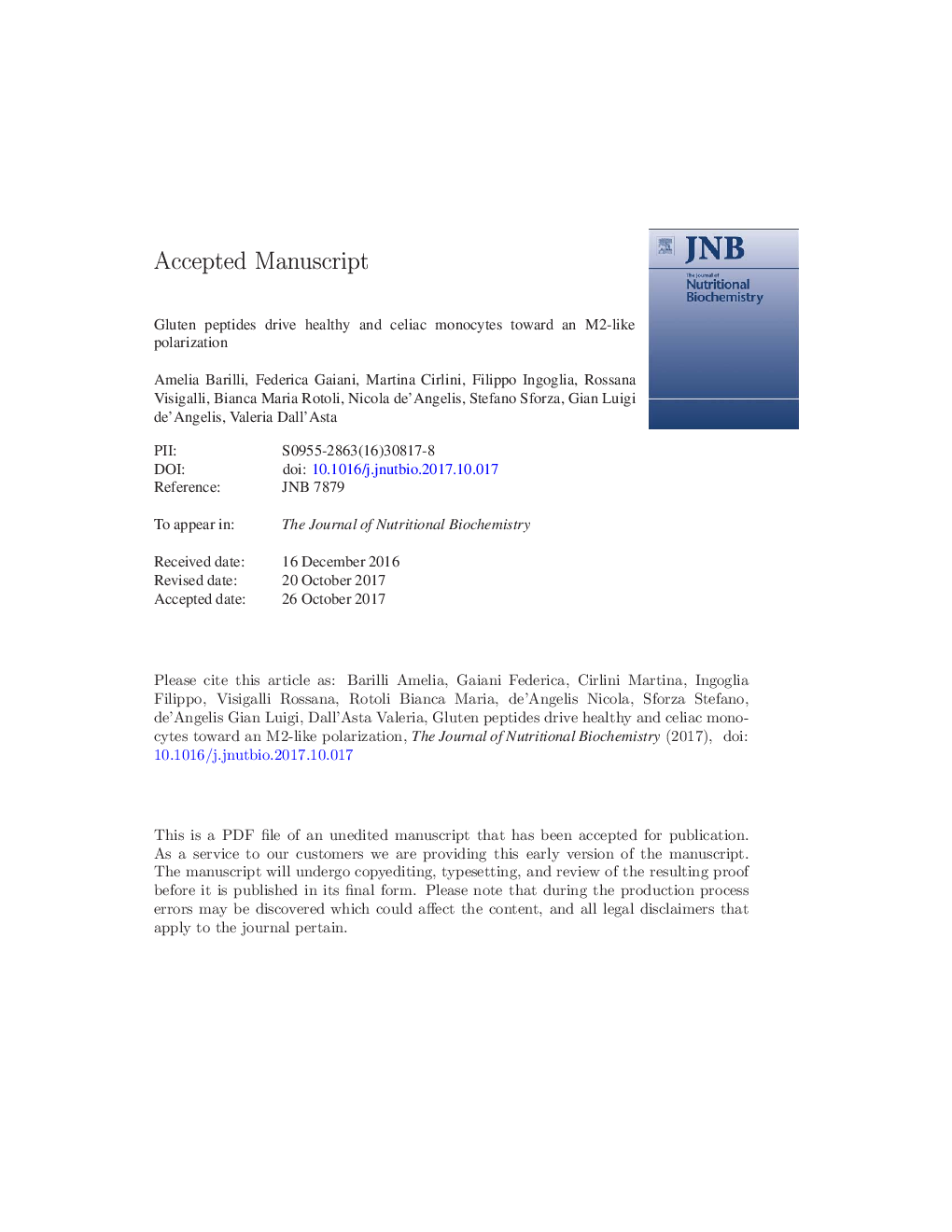| Article ID | Journal | Published Year | Pages | File Type |
|---|---|---|---|---|
| 8336402 | The Journal of Nutritional Biochemistry | 2018 | 31 Pages |
Abstract
Celiac disease (CD) is an immune-mediated enteropathy triggered by ingested gluten in genetically susceptible individuals and sustained by both adaptive and innate immune responses. Recent studies in murine macrophages demonstrated that the activation of arginase (ARG) metabolic pathway by gluten peptides contributes to the modulation of intestinal permeability in vitro. Here we characterize the effects of gluten on arginine metabolism and cell polarization in human monocytes from both healthy and CD subjects; both a simplified enzymatic digestion of gliadin and a physiological digestion of whole wheat have been tested. Results indicate that gluten digests induce the onset of an M2-like phenotype in activated macrophages; more precisely, both isoforms of arginase, ARG1 and ARG2, are induced likely due to the inhibition of mTOR and the consequent induction of C/EBPβ transcription factor. These effects are independent from the origin of gluten as well as from the digestive protocol employed; moreover, no statistical difference can be evidenced between healthy and CD patients, excluding a diverse predisposition of CD monocytes to gluten-triggered polarization with respect to healthy immune cells. Overall, the present findings sustain a role for arginase pathway in the immune response elicited by human monocytes toward ingested gluten that, hence, deserves particular attention when addressing the pathogenesis of CD.
Related Topics
Life Sciences
Biochemistry, Genetics and Molecular Biology
Biochemistry
Authors
Amelia Barilli, Federica Gaiani, Barbara Prandi, Martina Cirlini, Filippo Ingoglia, Rossana Visigalli, Bianca Maria Rotoli, Nicola de'Angelis, Stefano Sforza, Gian Luigi de'Angelis, Valeria Dall'Asta,
